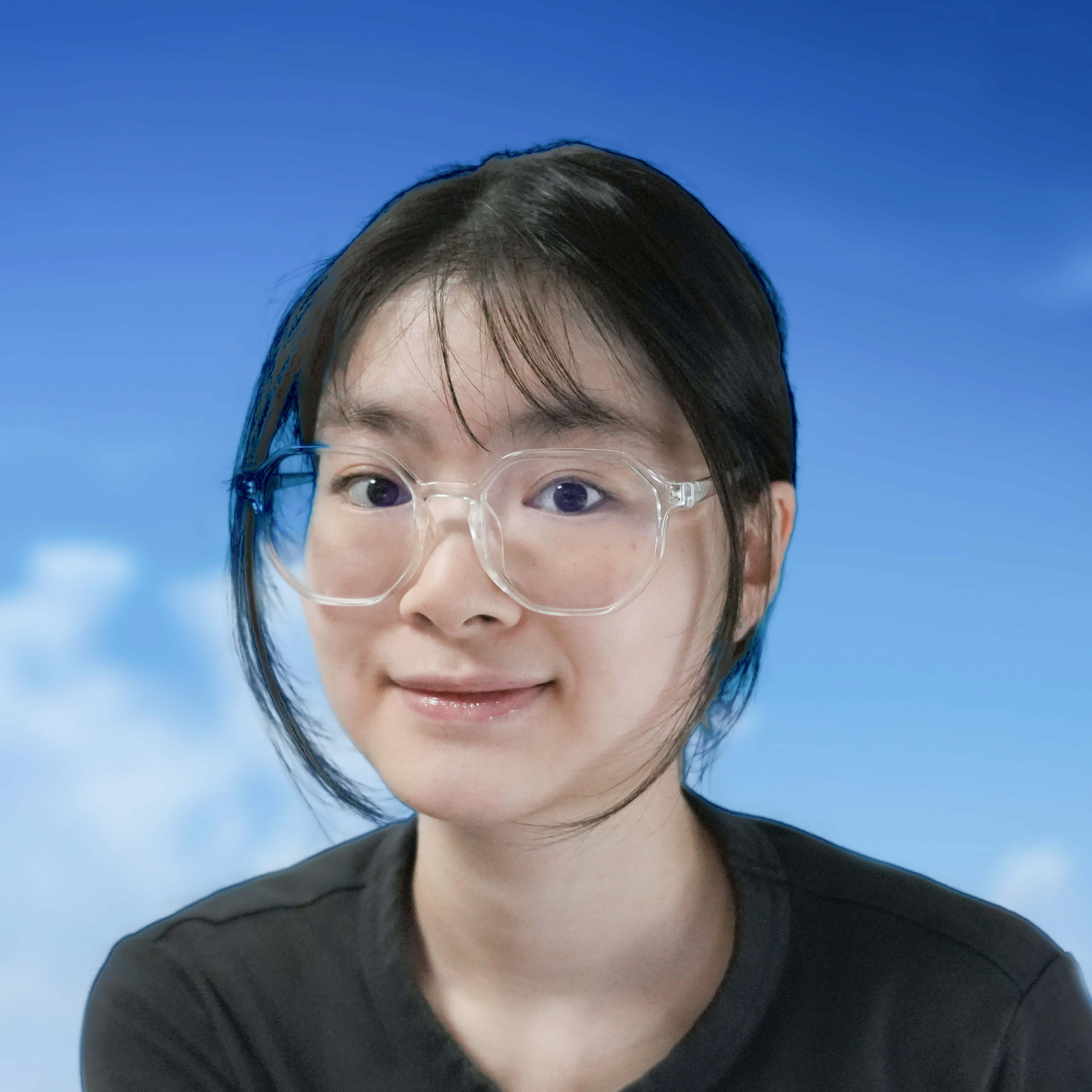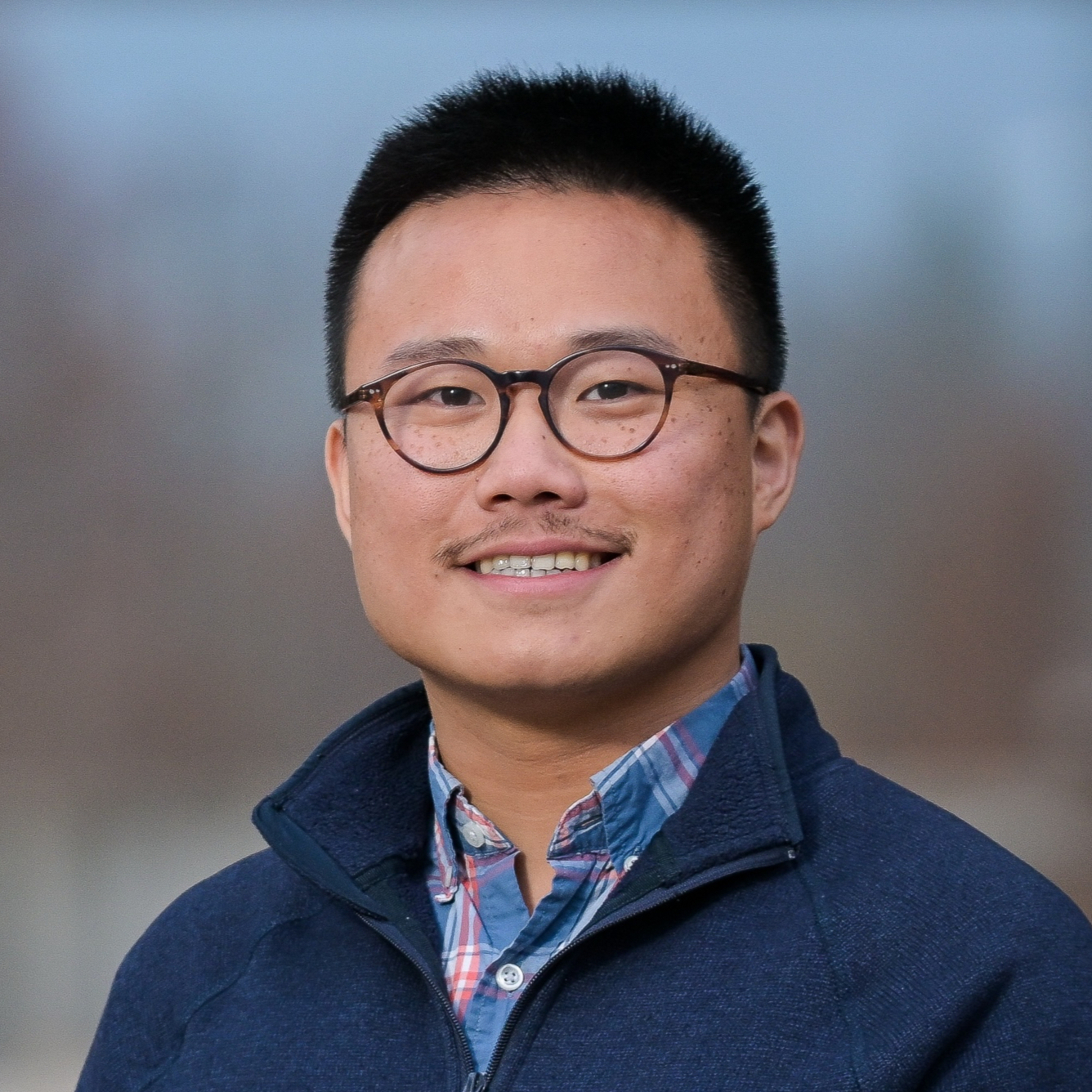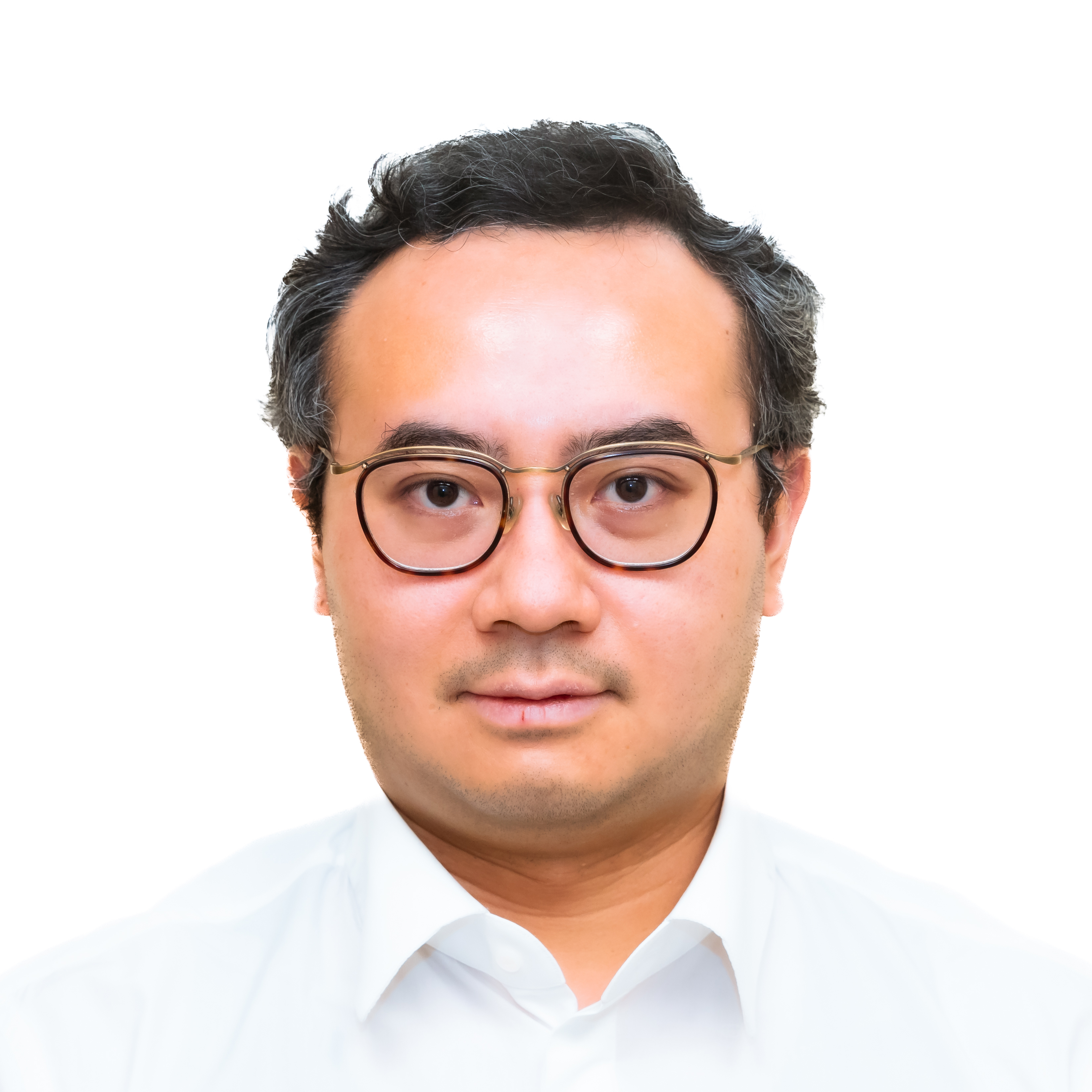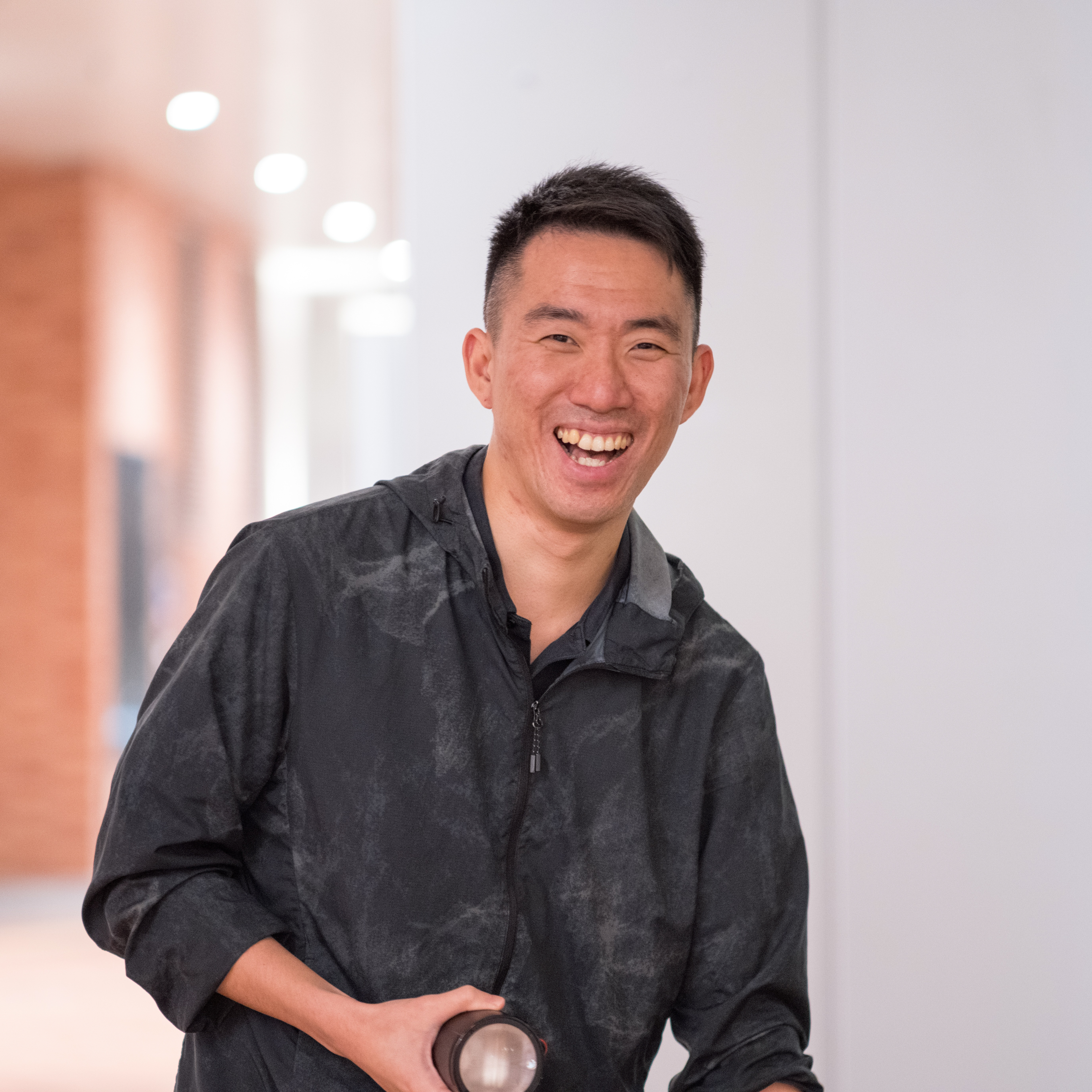Q&A with HKUST Life Science Majors
By Daria Zaitseva

Coby NGAI
BSc in Biochemistry and Cell Biology, 2025

Dr. Peiwei (Charles) CHEN
Postdoctoral Fellow at Cornell University (Evolutionary Biology)
PhD in Biology at California Institute of Technology, 2024
BSc in Biochemistry and Cell Biology, 2017
Photo credit: Heather Ainsworth / AP Images for HHMI

Dr. Nathan CHAN
Resident Doctor (Oncology) at Hospital Authority
MBChB at The Chinese University of Hong Kong, 2016
BSc in Biology, 2011

Dr. Brian SIT
Year 4 medical student at University of Hong Kong
PhD in Biomedical Sciences at King's College London and the University of Hong Kong, 2021
MPhil in Biochemistry at the University of Hong Kong, 2014
BSc in Biology, 2011
What is your plan at this stage of your career? How different would your career path be if you did not study life science?
Coby:
I already had a passion for teaching since my time in primary school, but what truly sparked me is a course here in HKUST. It was about promoting science in the community. I really liked that course because I think nurturing youngsters is especially important. In the coming year, I will study for a postgraduate diploma in education and hopefully become a biology teacher soon. I believe that teaching allows me to have a more immediate and meaningful impact by nurturing and inspiring young minds.
Charles:
Looking back, I feel like I never had to choose the program. Yet I remember when I declare my major at the end of the first year, I was debating between mathematics and economics, and biology. The former would make money; people around me thought it was popular and hot. Biology, on the other hand, was more my true interest. You know, in Hong Kong, there's a very strong business culture. Under that environment, it makes sense for someone to wonder whether you should pursue a career path that feeds into that big field. But at the time, I was lucky to have good mentors, like Professors King Chow and Tom Cheung. They encouraged me to pursue research, so I ended up in the first cohort of the international research enrichment track. Then everything just fell into place – I went for PhD, did a postdoc, and hopefully, one day I'll be a professor somewhere.
Nathan:
My major at HKUST was biology. After graduation, I enrolled into another undergraduate program, which is a medical degree at CUHK. I'm now working in the hospital authority as a resident doctor. My specialty is oncology. Back then my first choice was not biology, but the Bachelor of Arts program offered by HKU because I wanted to study Chinese. I cannot imagine what I would be doing now if I enrolled in that program.
Brian:
During my undergraduate studies, I explored neuroscience; in my master's program, I delved into developmental biology; and in my PhD, I shifted my focus to mechanobiology. After graduation, I was fortunate to join the Department of Health to assist in the fight against COVID-19. Now, I am back on campus pursuing medical studies, while actively participating in psychiatric research. My dream is to become a clinician-scientist one day, bringing clinical questions into the research laboratory. At this moment, my solid foundation in biology from HKUST life science program provided me with a strong base to realize this dream. If I had not studied biology, I believe I would have chosen philosophy. A life dedicated to exploring questions and seeking answers is truly wonderful and inspiring.
What inspired you to major in life science?
Coby:
When I was in secondary school, I joined a competition called iGEM, in which participating teams addressed real-world problems through genetic engineering. It was interesting because it seemed like in secondary school, everyone only studied for good grades. This competition made me realize that we can apply the knowledge we learned in class to change the world. It was a meaningful and a fruitful experience.
Charles:
My mom is a doctor. So, when growing up, I was exposed a lot to medicine, healthcare, and biology for the sake of curing diseases and helping people. I always felt like there was a natural draw for me towards life sciences. Then in high school, I was good at biology. Sometimes if you're good at something, you will like it more. I was lucky to meet good professors who created a safe, inspiring and a positive environment for me to experience scientific research. The first success in my sophomore year was a tiny discovery. I call it a “discovery,” but it's just an insignificant finding. You know, when you figure out something for the first time, that first taste of success really gave me a big boost of confidence. It made me feel like I could do it. So why not? If your job is what you love, you will achieve the best scenario you can imagine.
Nathan:
Of all science subjects, I have the most interest in biology. I consider mathematics and physics as very hardcore and robust. Biology is a little bit different from all other science subjects; some people back in the very old days considered biology and geography as arts subjects. It is not such a typical science back in history. To some extent, I agree on that there’s something special about biology.
Brian:
In form three, I chose to enter the science stream, which sparked my endless fascination with the tiny universe within cells. I wondered how a small cell could have enclosed a microscopic factory, and how cells communicate and coordinate with each other to support the functioning of the whole body. Everything about this was incredibly intriguing. And I must admit that I am not particularly strong in mathematics, so ultimately, it felt natural for me to pursue biology.
How has your perspective on life science evolved during your time at HKUST and beyond?
Coby:
It seems like we learn a lot of new things in the first year of high school. We are learning so much that it starts to feel like we know something. Then when we promote to the second year, I realized, “oh, wow, those were actually very basic concepts, and teachers simplified things a lot.” For example, in genetics we know only three combinations of genotype at first: dominant-dominant, heterozygote, and recessive-recessive. After I took the university course, I realized that the real-life situation is much more complicated than you thought. The more I study, the more I realize I don’t understand.
Charles:
When I was in HKUST, I was really into research that has a direct translational component. In the Hong Kong there's a lot of startup culture, various support to help you translate your idea or your basic research funding into something viable for a startup or a biotech.
I remember when I was applying for grad school, I was really into stem cell biology, which holds the secret or promise of regeneration – how we can age better and how we can cure diseases that's otherwise impossible. However, my graduate school at Caltech is very strong in basic biology research. So, I took a 180-degree turn and worked on something really basic and foundational, sometimes just for the pure sake of curiosity. Curiosity-driven research doesn't always have an immediately obvious impact on society, but in the long term, if you look backwards in the last 20 to 30 years, many big discoveries or breakthroughs in healthcare and medicine came from foundational research. Those weird worms that crawl around and have a small RNA that regulates genes, now known as microRNA, just got the Nobel Prize. It was a curiosity-driven finding in the 90s without anyone knowing its importance. Therefore, even though I'm not working directly on Parkinson's or Alzheimer's, I think foundational research will one day be able to transform the way we think about disease and help people.
Nathan:
I wanted to study medicine and Chinese. My public exam results certainly wouldn't allow me to study medicine, so my first choice was the Bachelor of Arts program. I didn't end up in that program but the biology program at HKUST. I studied quite well in the first one or two years, so I thought maybe I could try to apply for the medicine program. Therefore, I looked into the non-JUPAS path for a medical degree. In HKUST, I had a chance to study the cancer biology course taught by Dr. Eugene Hung, which eventually led me to work as an oncologist.
One reason for choosing oncology is that there is a constant advancement in treatment, so it is a very exciting field to be in. On the other hand, it is a very humane field; you have to be sympathetic because after all, you are seeing patients and their family, helping them face the disease but not just using new technology or giving them drugs.
Brian:
During my time in secondary school, I was only interested in “microscopic” cell biology. Only after entering HKUST did I realize ecology is also fascinating. The concepts I learned about competition theory in ecology left a deep impression on me, and I also discovered that many conflicts among humans seem to reflect similar principles. Additionally, the time when I entered HKUST coincided with the dawn of the gene-editing era. Being able to immerse myself in such a vibrant and groundbreaking scientific world has truly been a wonderful experience.
What are some stereotypes surrounding life science that you would like to dispel?
Coby:
There’s one major stereotype from my family, relatives, and friends. They were probably influenced by movies in which scientists mistakenly released a deadly virus and that sort of things, so they always think that I do dangerous experiments in full protective gear, but it's not the case. Still, when I tell my friends I'm handling Escherichia coli, they tend to think about gut and stomach infection. Actually, there are different strains of E. coli, and the strain we handle is harmless. Some strains may even be probiotics and are good for you. Anyway, that kind of dangerous experiments on the screen probably exists, but they are carried out under strict regulations.
Charles:
A common one is that many people think biology or life science is all about memorization. I have many friends in mathematics, business or engineering who hate biology because they don't want to memorize all the “random” facts. But once you get into biology or life sciences, you start realizing things make sense, and the only difficulty is to go through the initial “activation energy” to get familiar with the terminology.
Nathan:
Most people think that knowing biology is kind of knowing everything. Usually, my friends would ask me random facts about a beautiful flower, or the meaning of their strange dreams, even after I entered medical school. They asked me the name of a tree because I had studied biology as my first degree. I would reply, “No, no, no. I don't know all the trees and flowers.” This is a tricky misconception – all of us are thought to be good at taxonomy or biodiversity – but I don't think memorization matters that much in biology. It is more analytical.
Brian:
Many people might have the stereotypical idea that studying life sciences means you can only pursue related careers. Looking back at my journey, I feel fortunate to have met classmates who have taken very diverse paths: some continue in research, academia, or biomedical engineering, while others have advanced into medical fields. There are also classmates who have gone into finance, consulting firms, or even switched careers to become barristers and pilot. I believe that the greatest benefit of studying science is the development of logical thinking and problem-solving skills. Those who can effectively apply these abilities can shine and make a difference in any profession they choose.
Do you have any advice for high school students thinking of studying life science?
Coby:
The only way to find out whether you like something is to get your feet wet. HKUST is quite nice in this respect because, for example, they offer summer programs to high school students. As a teenager, I would have loved to hear professors talking and have a taste of what classes would be like if I studied life science. HKUST iGEM team also organizes workshops for high school students. If you are interested, please follow our social media for more information!
Charles:
When I was graduating from high school or studying at HKUST, I asked for wise words from senior people, but didn't really listen to them. So, I don't know if young people will listen to me either, but I want to encourage students to follow what they like. If you love engineering, go for it. Maybe other people don't see the joy in biology, but if you see it go for biology. Growing up or around college years, there are a lot of voices around you, from your parents, from people around, from the news, from the media, and all have different opinions. However, you have to carve out your own path. After all, it is your own life that you live, right? No one else lives your life.
There are just too many things to worry about. You worry about your grades, about whether you can get a job, about what's the next step in your life. When you have so many things to worry about, it's really hard to enjoy and do what you like. There's a motto I heard somewhere like secondhand wisdom: If there's something you won't worry about in three years, then don't worry about it for more than three seconds. You might dread about your exam today, but in three years, it wouldn't matter, right? So don't worry about it. In the grand scheme of things, small worries don't matter. So just enjoy, have fun, and relax.
Nathan:
Be open-minded. What I meant by “open-minded” is that if you are committed to something, you have to finish it. If you are unlucky like me that you fell into your second or third or fourth choice, those are still your choices. You put them into your second, third, or fourth choice, not without a reason, not only for a safety net. You still have to be determined, and during the period of study, again, revisit your reason about why you wanted to study this, and why you wanted your first choice. Then you can think about: Do I have a chance to get my path back to my first choice? If the answer is no, then see things differently and take a different path. Biology was not my first choice [but medicine and Chinese], but I treasure my undergraduate experience as it certainly helped my career and my life. Even if things don’t go as planned, you can still find your true calling serendipitously.
Brian:
If you enjoy thinking about various questions day and night, love the feeling of finally understanding a little bit more about the topics you love, and enjoy hands-on experience with expensive and sophisticated instruments, then you must choose science! If you have a passion for the biological world, be sure to pursue life sciences! You will surely find joy and fulfillment every day.